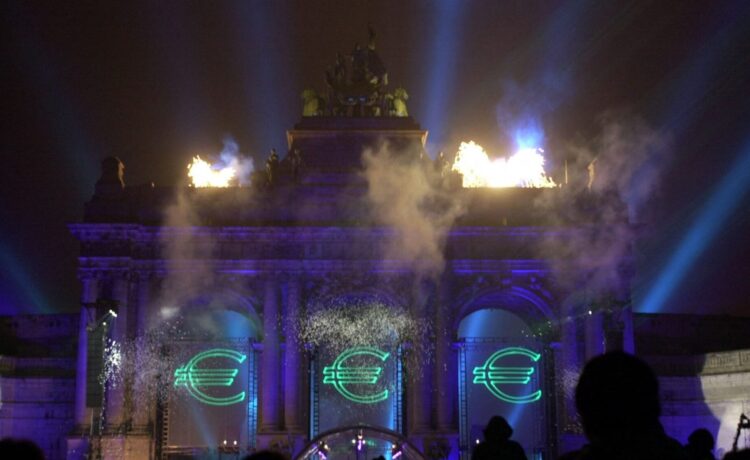My baby is 25, I can hardly believe it.
I was there when the EU decided to have a baby currency all its own. I was there on Black Wednesday when chancellor Norman Lamont had to admit he had failed to keep the pound in the Exchange Rate Mechanism, thus falling out of alignment with other European currencies
And I was in Brussels when the speculators came for the other members of the ERM, and at an all-night meeting when Europe’s politicians saved their new planned currency. I reported on the creation of the virtual euro 25 years ago, on January 1, 1999. It was an invisible currency then, used for electronic payments. But it was a single currency nonetheless.
Most importantly, I was in Frankfurt when the physical euro was born three years later and I reported on how the euro was being introduced into Germany, one of 12 countries that joined (there are now 20). Even then the Eurosceptics were claiming it would be a disaster, a conman’s wet dream, a forger’s delight, that there would be riots as furious Germans demanded back the Deutschmark.
Instead, I watched as supermarkets took payment in Deutschmarks and gave change in euros, then literally threw the old currency into cardboard boxes. The same happened around the eurozone. The cashpoints produced euros, those old currencies became pointless almost overnight.
Months had been allowed for the changeover but by the end of the week you couldn’t find a franc or a guilder. Plans for the gradual phasing out of old currencies on the financial markets over several months happened on day one. The Euro became a world reserve currency immediately and has stayed that way.
All has not, of course, been plain sailing. Life never is.
The new currency zone is not what economists call an optimal currency area – that means some parts of the eurozone would be better off with their own currency. Most notably Greece, which should never have been allowed in and has suffered. Germany has dominated too much and refused to spend more to compensate. Unlike in America which also has one currency where several might work better, the problems cannot be offset by high spending by the state – the EU’s budget is just not big enough to do that.
Other countries should have joined, notably Denmark and Sweden and even Norway, which would easily meet all the criteria and more and would therefore strengthen the eurozone.
But my baby has survived, grown and prospered.
I was also there when Gordon Brown decided the UK should not join the Euro – the right call in my opinion but a great pity. I was in Greece when its economy collapsed under the pressure of its membership of the euro, which it only managed to join by lying about its economic data. Tough teenage years to be sure, but people marched and campaigned to stay in the euro.
The important thread that has run throughout the last 25 years is that the euro is far more than an economic concept. It is a very, very political one too. The willingness of diverse politicians and their voters from different countries to rally round and fight for the euro, even when it is costly, has been a shock to those who have never understood the EU and never will.
It was and is the natural extension of the single market, removing barriers and costs for people and firms across the continent, bringing them all closer together.
Its future is not guaranteed. No future is. But it is a globally important currency representing a massive economy. It makes me proud to see it reach its 25th birthday.
Happy birthday, baby!















